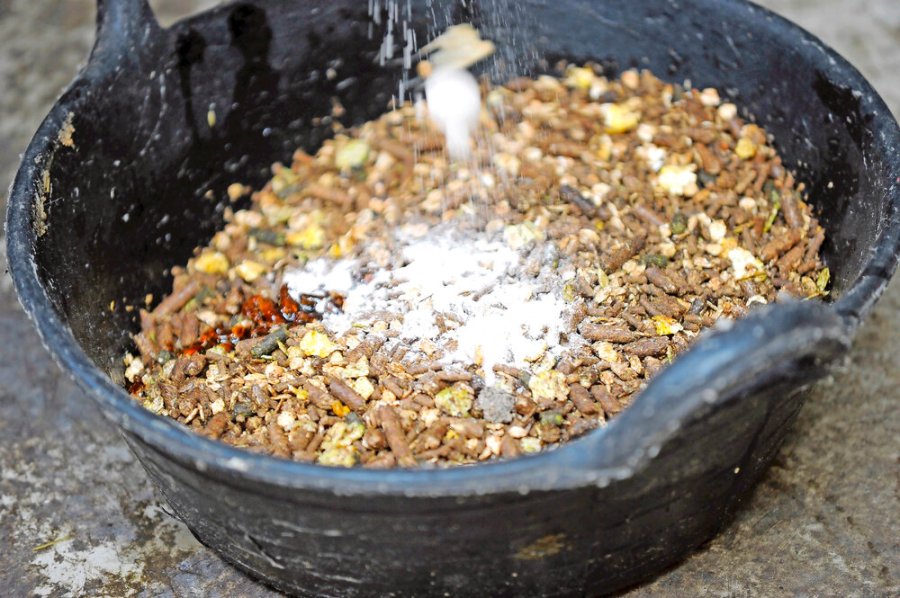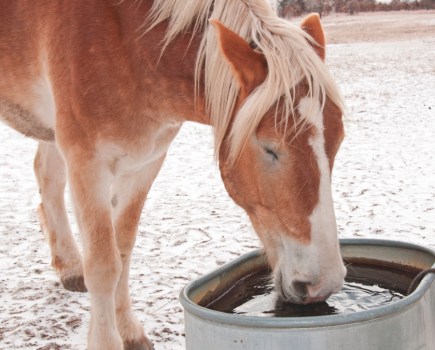It’s easy to think that forage is more than enough for your horse, but in reality grass — and that includes even spring grazing which we typically think of as long and luscious — may be deficient in some key nutrients.
“While grass alone may provide up to three times the horse’s daily energy (calorie) requirements, certain nutrients, such as lysine, copper, zinc and selenium are typically low in UK pasture,” says Clare Barfoot, marketing and research and development director at Spillers.
“Vitamin E is the most important antioxidant and, although grass alone may meet maintenance requirements, levels in hay and haylage may be negligible.”
Good nutrition is about balance and understanding the individual roles nutrients play.
“Good doers and obese horses need a cut in calories, but not nutrients,” explains Clare. “Forage alone, particularly when provided in restricted rations or after soaking, is unlikely to meet protein, vitamin and mineral requirements. Feeding a balancer is the ideal way to provide essential nutrients without excess calories.”
A well-designed balancer will provide the ideal levels of vital vitamins, amino acids and macro and micro minerals to balance the base diet while contributing minimal calories and starch.
“This makes them the ideal choice for horses and ponies who maintain their weight on a forage-only diet, or for those who require less than the recommended amount of compound feed,” adds Clare.
“Initially horses may look fine when not being provided with a balanced diet, but the long-term effects can include poor hoof growth and condition, a compromised immune system and a lack of general wellbeing. A balancer will provide about 20% of the calories of the recommended daily amount of horse and pony cubes and can be used safely for those on restricted diets.”
Added extras
Other ways to provide your horse with the required amounts of vitamins and minerals is through licks and vitamin/mineral powders.
“Licks can be an economical feeding option,” says Dengie nutritionist Tracey Hammond. “However, it’s important to use a lick that has been specifically fortified with vitamins and minerals at a level that’s appropriate for your horse.
“It’s also important to monitor your horse’s intake compared to the manufacturer’s recommended feeding rate. Some horses may not be interested in a lick and so won’t receive sufficient levels of trace minerals to correct a dietary deficiency. Others may over-consume, especially if they’re on restricted rations.”
Vitamin and mineral supplements supply a broad spectrum of vitamins and minerals and typically come in the form of a powder.
“Vitamin and mineral supplements are most appropriate to use when the horse’s diet still contains a reasonable amount of grazing, or if he’s being fed a product that supplies additional good-quality protein alongside, if grass access is restricted,” says Tracey.
“As a powder, a broad-spectrum vitamin and mineral supplement needs to be added to a carrier in order for it to be eaten. The best way to do this, for minimal calorie intake and for some additional chew time, is to take a double handful of a low-calorie fibre feed, and dampen the feed with water to stop the powder falling to the bottom of the bucket.”
Don’t miss the latest issue of Your Horse Magazine, jam-packed with training and veterinary advice, horse-care tips and the latest equestrian products, available now.









